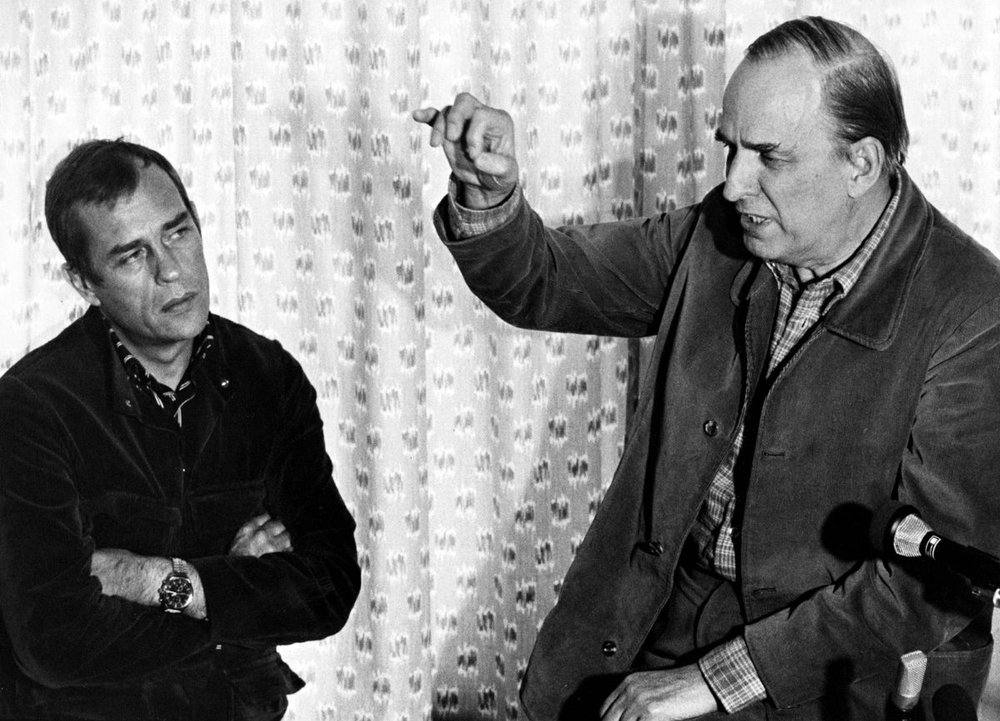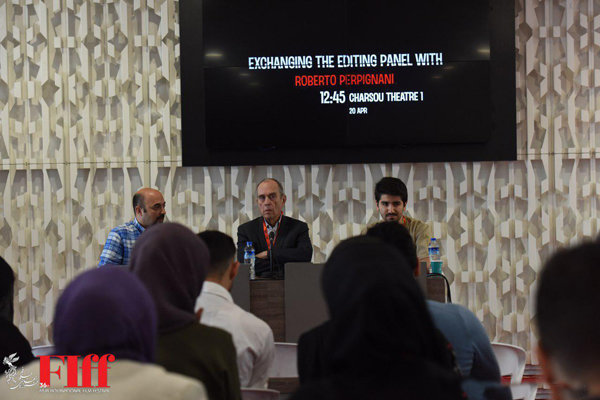At 85 years of age, Swedish-speaking Finnish writer, film director, actor, producer, politician, and founder of Finnish Film Archive, Jörn Johan Donner, has given up filmmaking because he got tired of “influencing the money people” to sponsor his films. “If there’s money coming, I can make a film next year,” he jokes with his trademark deadpan expression; but until then, as the author of 55 books to date, he will mostly focus on his writing.
43 years have passed since the last time Donner was in Tehran. What brought him back after all these years, he says, was his chance meeting with the Fajr International Film Festival Director Reza Mirkarimi in Moscow. The both of them were part of a jury panel at the 39th Moscow International Film Festival in 2017. Naturally, Mirkarimi invited him to be a special guest at this year’s Fajr festival. Donner, ever so graciously, accepted.
He is best known for his collaboration as a producer in Ingmar Bergman's films such as “Fanny and Alexander”. During a workshop on Thursday, Donner screened his documentary movie about Bergman’s life in celebration of Ingmar’s centenary of his birth in 1918. “Bergman was a film maker with a Swedish mind. That does not mean he didn’t care about life and death, but his mind always circled around social inequalities and questions about life,” he said about the legendry Swedish auteur during the workshop that introduced the participating young Iranian filmmakers to the roles, tasks and obstacles faced by film makers and producers.
“While working with Bergman as a producer, I never messed up with the content of what he was directing. The only thing that concerned me was the schedule and the money,” Donner says at the presser held on Friday morning at Charsou Cineplex in downtown Tehran. “And I knew I could trust Bergman in keeping within the timetable and the budget as he was very particular about these things.”

Donner makes a point to talk about the share of women filmmakers in the cinema industry. “As a reflection on Harvey Weinstein’s scandal in the United States, there has been a very aggressive movement in Scandinavia to have more equal opportunities for women directing films or working as cinematographers. I have produced quite a number of films directed by women in Sweden and Finland, but what I hope for is for the share to rise. Currently, 90 percent of movies are directed by men, which necessitates much more female participation in the future.”
As a filmmaker dabbling in politics, Donner calls himself a ‘dissentient’. “I have shown in my documentaries that I am very critical of the present politics in Finland,” he says. “I have a completely different opinion than of our present government, and I will continue to be a critic and no one can ever stop me from creating the content I want.”
He admits that he knows too little of the Iranian cinema (he is later gifted a complete collection of works by notable Iranian filmmakers Asghar Farhadi and Abbas Kiarostami, as a crash course), but he is aware of the rather wide cultural gap between Iran and Scandinavia. He is quick to add that despite the differences in culture, which sometimes makes it difficult to find a common language between nations, the films continue to deal with the eternal questions of life and death and love.
While he is on the subject of universal themes shared across different cultures, I ask him if he believes that the film industry in Scandinavia, in an attempt to appeal to a wider audience by detouring around cultural differences, is shifting away from artistic values toward Hollywood commercialism.
“I personally think that films made by a particular nation tend to encompass the experiences of that nation. So, the Scandinavian and Northern cinema will continue to be based on those experiences, but still, good filmmakers, like Ingmar Bergman, are able to eliminate the borders between people by doing films that are considered just as important outside the national borders. The best films are the ones which can close the borders and be shown and understood all across the world. Of course, that’s not an easy thing to do.”
Donner is very particular about the importance of “freedom of expression” in filmmaking; “You have to remember that the basis for all artistic mediums is the freedom of expression,” he says. “It is just as important to make a film about the Iranians as it is to make films that concern Scandinavian people. I hope that the up-and-coming filmmakers of Iran will be able to continue the tradition of open-minded filmmaking and enjoy the required freedom of expression in their creation.”

























Your Comment